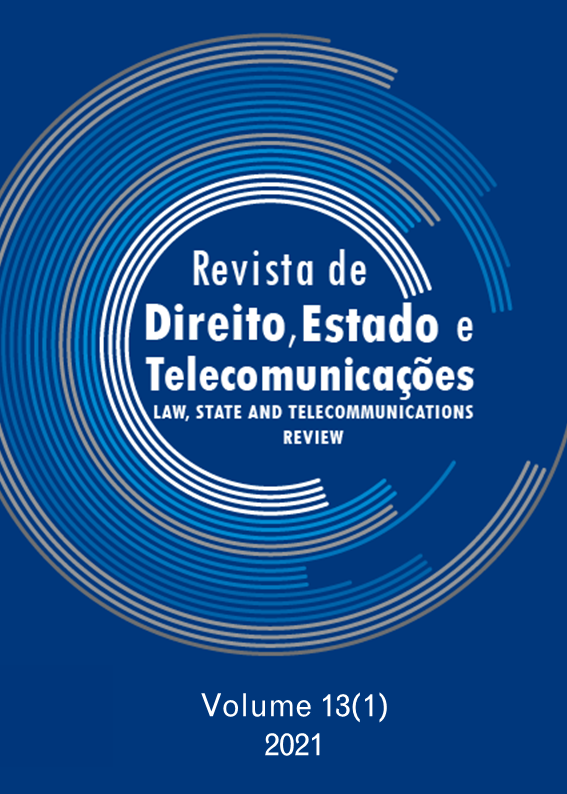Legal Aspects of the Blockchain Technology
DOI:
https://doi.org/10.26512/lstr.v13i1.29262Keywords:
Blockchain. Public Faith. Security of Information. Smart Contracts. Private Law.Abstract
Purpose – This study analyzes some relevant aspects of the role of public faith against the operability of the blockchain, as well as the incidence of this technology in relevant legal aspects such as privacy and the protection of personal data as fundamental rights in Colombia.
Methodology- The research method is that of legal cybernetics, which studies the relationship between actions and their objectifying effects. In this case the action is the use of blockchain technology and its effects on the use of private information, as well as its purposes and consequences in the legal field based on a reflective relativism that is: adopting the disruptive changes that arise from technological uses in order to demonstrate how the classic concepts of law in commercial practices and commercial relations have currently changed, relativizing traditional legal constructions, which do not reach the regulation of these new practices, which become usual and obviously non-legal practices, that is, practices that appear spontaneously for the world of law, but which are already in place in social practices and thus although there is a legal denial and s it is essential for society to get out of these megatrends such as the use of mobile applications for transport services and the use of the blockchain(Ghersi, 2017).
Findings – An analysis of the operation of the blockchain and the main legal implications was achieved, as well as identifying the associated legal risks in terms of contractual freedom, personal data protection and privacy rights.
Practical Implications – The blockchain is a technology that is being used in the business field and in the relationships between individuals nowadays more and more frequently, however, as part of private law relations considered atypical for Colombian legislation this makes it necessary for those who They use, from various roles, to know the implications and risks in legal matters and the importance of managing in this regard.
Downloads
References
BALDWIN, R.; CAVE, M.; LODGE, M. (Eds.). The Oxford Handbook of Regulation. Oxford: Oxford University Press, 2010.
BÖCKENFÖRDE, E.-W. Escritos sobre derechos fundamentales. Tradução de Juan Luis Requejo Pagés e Ignacio Villaverde Menéndez. Baden-Baden: Nomos, 1993.
CARLSSON, U. The Rise and Fall of NWICO: From a Vision of International Regulation to a Reality of Multilevel Governance. Nordicom Review, v. 2, p. 31-68, 2003.
CONTRERAS, L. Sobre la fe pública y la. Revista para el análisis del derecho, p. 2-21, 2011. Disponivel em: <http://www.indret.com/pdf/828_es.pdf>. Acesso em: 25 nov. 2018.
DOLADER, C.; ROIG, J.; MUÑOZ, J. La Blockchain: fundamentos, aplicaciones y relación con otras tecnologías disruptivas. Economía industrial, p. 33-40, 2017. Disponivel em: <https://www.mincotur.gob.es/Publicaciones/Publicacionesperiodicas/EconomiaIndustrial/RevistaEconomiaIndustrial/405/DOLADER,%20BEL%20Y%20MU%C3%91OZ.pdf>.
ERK, J. Austria: A Federation without Federalism. Publius, v. 34, n. 1, p. 1-20, Winter 2004.
GHERSI, C. Metodología de la investigación en ciencias jurídicas / Carlos A. Ghersi y Sebastián R Ghersi. Buenos Aires: Gowa ediciones profesionales, 2007.
HÄBERLE, P. Die Wesensgehaltgarantie des Art. 19 Abs. 2 Grundgesetz. Karlsruhe: C.F.Müller, 1962.
HUMBOLDT, W. V. On Language: On the Diversity of Human Language Construction and its Influence on the Mental Development of the Human Species. Tradução de Peter Heath. Cambridge: Cambridge University Press, 1999.
LEVY, B.; SPILLER, P. (. ). Regulations, Institutions and Commitment. Cambridge: Cambridge University Press, 1996.
LUHMANN, N. Law as a Social System. Tradução de Klaus A. Ziegert. Oxford: Oxford University Press, 2004.
POSADA, C. Las cláusulas abusivas en los contratos de adhesión en el derecho colombiano. Revista de derecho privado, Universidad del Externado, p. 141, 2015.
PRICE, M. E.; NOLL, R. G. (. ). A Communications Cornucopia: Markle Foundation Essays on Information Policy. Washington, DC: Brookings Institution Press, 1998.
ROJO, M. Blockchain, fundamentos de la cadena de bloques. [S.l.]: Ediciones de la U, 2019.
ROSE-ACKERMAN, S.; LINDSETH, P. L. (Eds.). Comparative Administrative Law. Cheltenham, UK: Edward Elgar, 2010.
SOCIEDAD ESPAÑOLA DE INFORMÁTICA DE LA SALUD. BLOCKCHAIN EN SALUD ¿Quimera o realidad? Revista de la Sociedad española de informática y salud, p. 6-74, 2018. Disponivel em: <https://seis.es/wp-content/plugins/pdfjs-viewer-shortcode/pdfjs/web/viewer.php?file=/wp-content%2Fuploads%2F2018%2F04%2F128.pdf&download=true&print=true&openfile=false>. Acesso em: 23 maio 2019.
Downloads
Published
How to Cite
Issue
Section
License
Copyright (c) 2021 Law, State and Telecommunications Review

This work is licensed under a Creative Commons Attribution 4.0 International License.
By submitting this paper to the Law, State and Telecommunications Review,
I hereby declare that I agree to the terms of the Creative Commons Attribution 4.0 International (CC BY 4.0).


